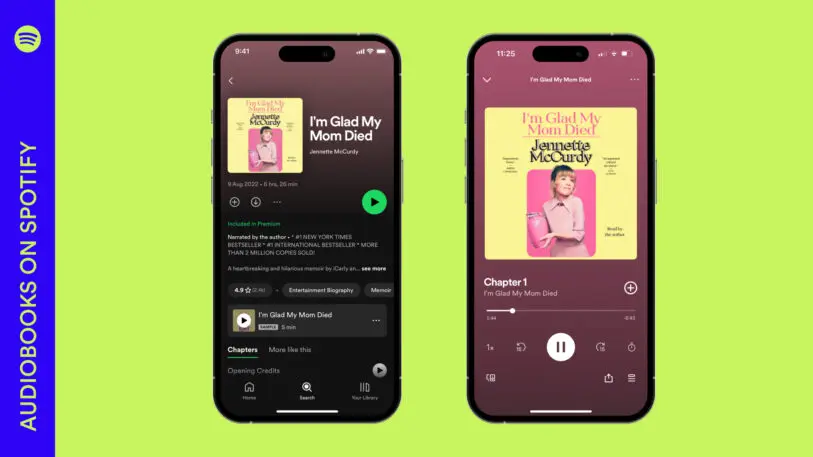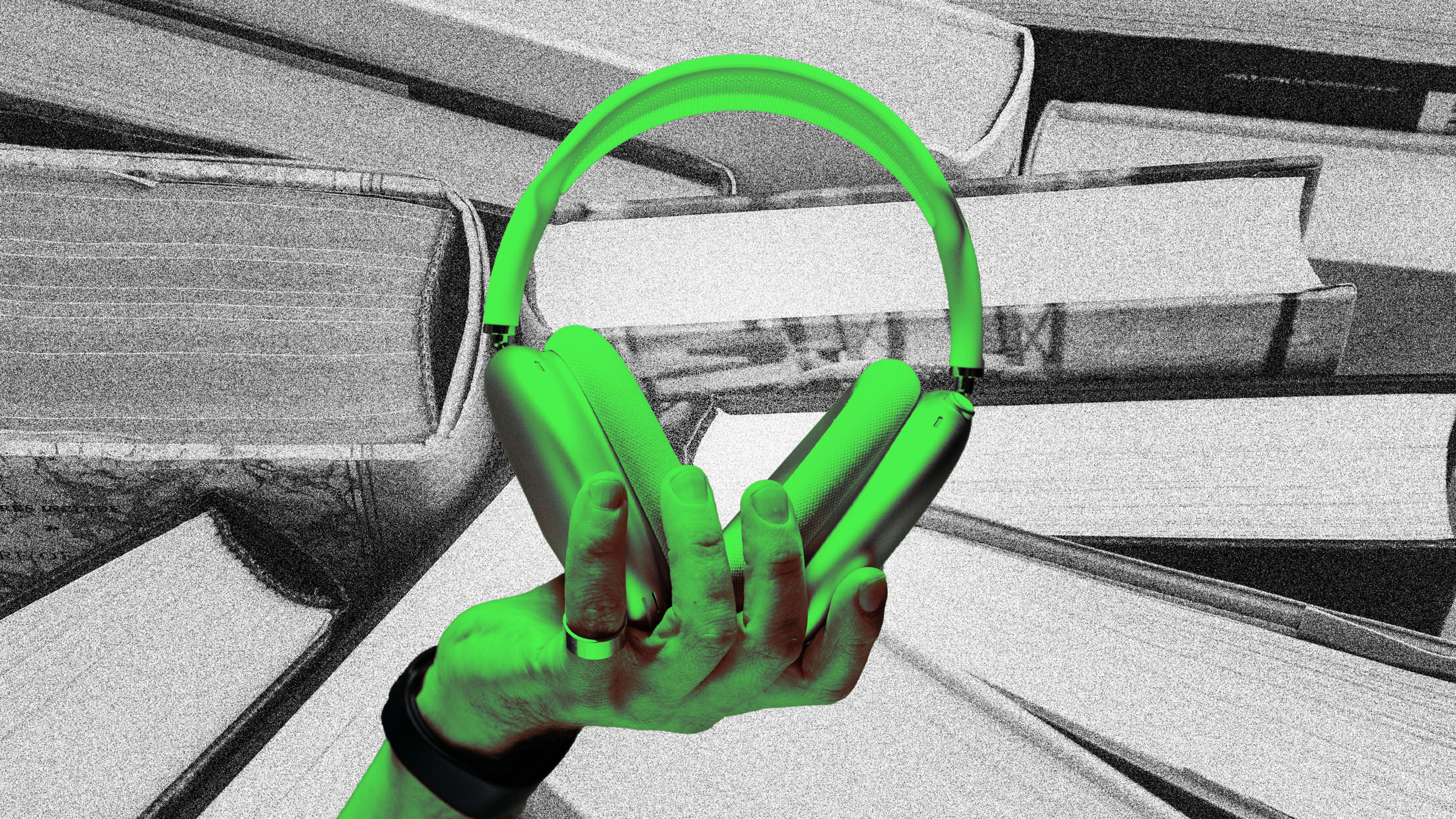Spotify is doubling down on audiobooks: Paying subscribers of the music service will now have access to up to 15 hours of audiobook listening as part of their monthly subscription. If they need more time to finish a book or want to start another title, they can purchase additional 10-hour allotments for an extra fee.
“We can bring a whole new generation that currently don’t listen to audiobooks to the medium,” Spotify CEO Daniel Ek tells Fast Company.
Spotify partnered with major publishers to make 150,000 books available on its new offering, called Audiobooks in Premium. The feature is launching in the U.K. and Australia this week; it is scheduled to become available in the U.S. this winter, with other markets to follow.

Spotify began its foray into the audiobook space with an à la carte store last year. That store will remain available to consumers, but Ek says that he wasn’t happy with the initial rollout. “It wasn’t the optimal consumer experience that we would have wanted to launch with,” he explains.
Spotify’s nascent audiobook business has been hampered by app-store billing policies, which have made the rollout on iPhones particularly challenging. In order to avoid having to pay Apple and Google a 30% cut of each transaction, Spotify has been redirecting listeners to its website to purchase individual books. On Android, Spotify has been able to email listeners direct links for each book to simplify the purchase process.
The company initially intended to offer the same feature on iOS but was forced to remove it under pressure from Apple. iPhone owners now have to manually seek out each book on Spotify’s site. “I do think it impacted us quite a bit,” Ek says. “Apple is constantly doing this. They are dictating the rules, and [are] taxing the entire ecosystem.”
In-app purchases have long been a point of contention, but there have been some signs of a truce of sorts between app publishers and Google: After removing in-app purchases from all of its mobile apps in prior years, Amazon quietly brought them back to some of its Android apps last month. Ek tells Fast Company that Spotify is in talks with Google about in-app payments as well. “I feel really good about the situation with Google,” he says. “They are good partners, and they are engaging with us.”
The audiobook market has been growing by double digits every year for over a decade, with domestic sales reaching $1.8 billion in 2022, according to the Audiobook Publishers Association. Amazon’s Audible, which has long offered a monthly subscription plan, is estimated to account for nearly two-thirds of the domestic audiobook spending. Spotify is paying book publishers based on the amount of time a title is listened to, according to a spokesperson.
Audiobooks are Spotify’s latest attempt to embrace audio formats other than music, which comes with very slim profit margins. The company invested heavily in podcasts and has, over the past few years, acquired heavy-hitting podcast studios like Gimlet and The Ringer. However, the results of those efforts have been mixed: In June, Spotify laid off 200 staffers of its podcast division as part of what an executive at the time called a “strategic realignment.”
“We overcommitted to some things,” admits Ek, while insisting that podcasting has “overall been a great success” for the company. One lesson Spotify is taking from podcasts for its new audio venture is not to venture into costly exclusives. “We don’t take that approach,” Ek says.
Eventually, audiobooks could become a blueprint for other content on the service as well, including the fact that Spotify is asking people to pay extra when they want to listen to more than one or two books per month. “We believe in having all modalities of monetization,” Ek says. This includes free, ad-supported access to music and podcasts, paid subscriptions, as well as add-on revenue opportunities.
“À la carte upsell purchases makes sense for certain types of content,” Ek says. “We want to give creators as much ability as possible to grow their audience, engage with their audience, and monetize their audience. We’re trying to build the tools [to make it] possible for them to do so.”
Recognize your brand’s excellence by applying to this year’s Brands That Matter Awards before the early-rate deadline, May 3.
